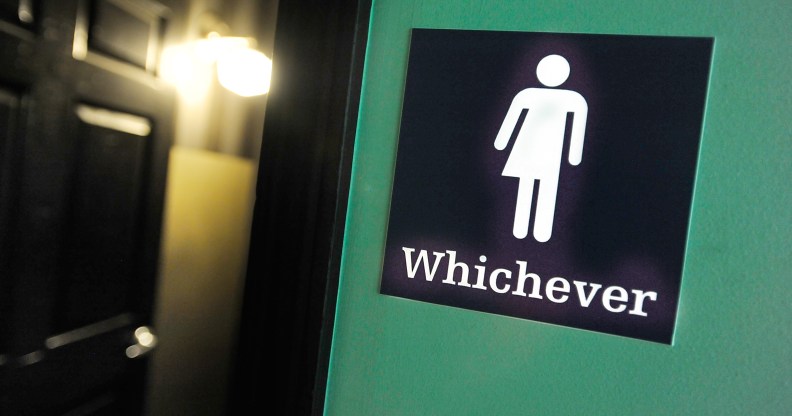What’s the deal with Mx?

A gender neutral sign. (Photo by Sara D. Davis/Getty Images)
Why do some people use the title Mx and why is it important?
It was recently announced that the Oxford English Dictionary might recognise Mx – a gender neutral version of Ms or Mr. The title was coined in the 1970s as a reaction to existing ‘discriminatory’ titles.
J McK told PinkNews it is important to them to be able to use Mx as a non-binary person.
They said: “It’s important as the courtesy title is a shorthand for an individual’s gender. A Mr is typically a man and a Mrs is typically a woman.
“Those are the kind of rules on which society – rightly or wrongly – functions. I don’t consider myself a man or a woman, so the existing cultural shorthand doesn’t fit me.
“While I am me, irrespective of who approves, and I am no more or less authentic a person for having or lacking wider approval, it is nevertheless a great boon to my own sense of worth and perceived validity to have those things recognised by society at large.
“My mind and society both are healthier places with Mx, than without it.”
However it’s not just non-binary or genderqueer who benefit from using Mx. Just as women began using Ms because they did not want their title to denote their marital status, some people do not want their title to denote their gender, regardless of what their gender is.
A woman PinkNews spoke to said: “Despite identifying very strongly as female, I’ve been uncomfortable with gendered titles all my life.
“Being denied a neutral option always seemed just as absurd to me as being required to declare my marital status because of my gender.
“As a child, I remember telling my mother that I wanted to become a doctor – not because it was my dream job, but because then I wouldn’t have to be called by a gendered title.
“As an adult, I’m less bothered by it, but mostly because I’m busy being furious that so many people auto-correct Ms to Miss.”
Öna Helveti agreed: “I like Mx as it helps avoid unnecessary gender connotations. I am comfortable being a cisgender unmarried female, but uncomfortable with society’s preconceptions and bias.”

